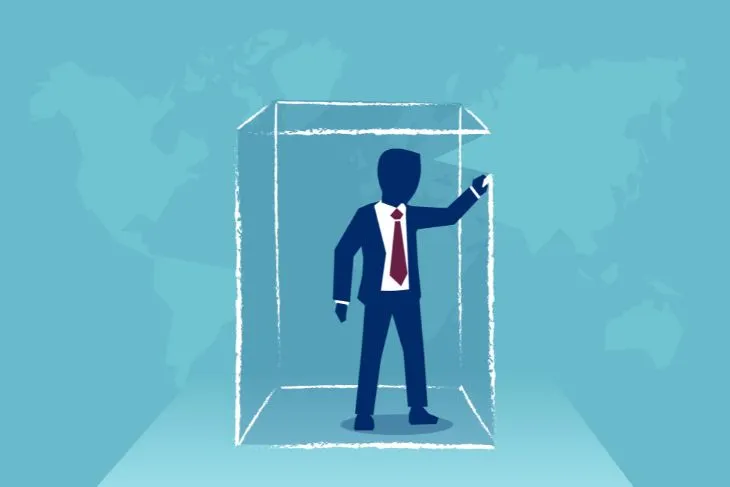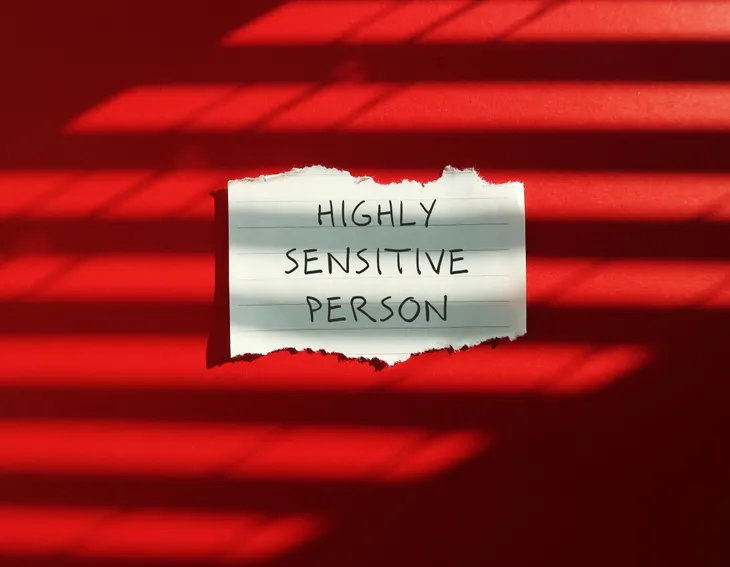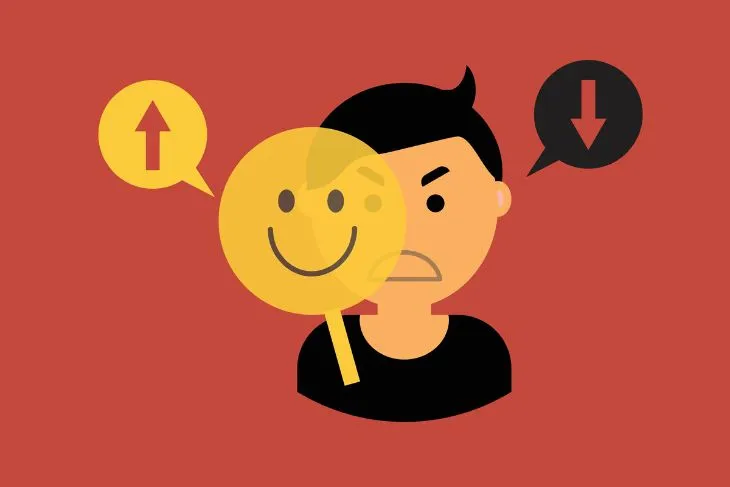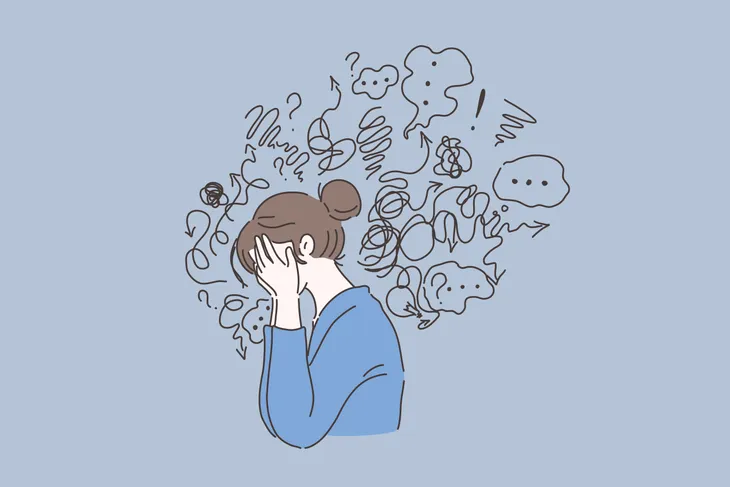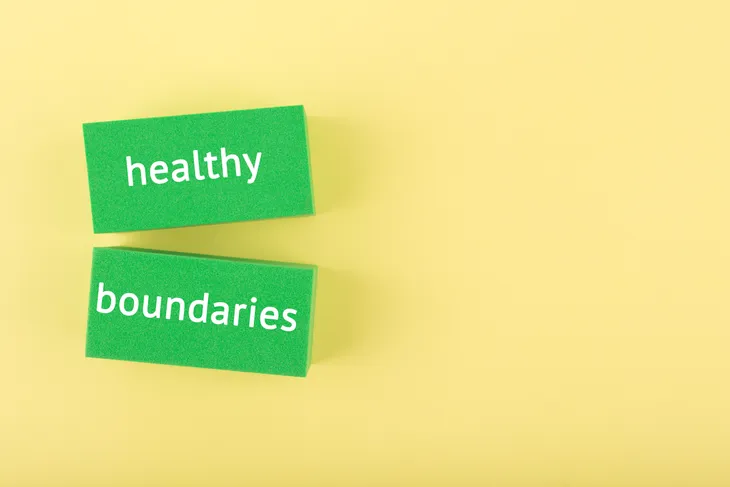- There are two subtypes of narcissistic personality disorder: covert and overt narcissism.
- A covert narcissist has all the symptoms of narcissistic personality disorder, but hides most of the obvious signs through introversion.
- Signs of covert narcissism include shyness, introversion, insecurity, defensiveness, and a sensitivity to what others think.
- When dealing with this personality disorder it’s important to set clear boundaries and not take it personally.
Narcissism is sometimes thrown out in casual conversation to describe a person who’s being arrogant or too self-involved. But clinically, a person needs to meet specific criteria before being diagnosed with narcissistic personality disorder (NPD). In general, VeryWell Mind describes people with NDP as being too preoccupied with their own self-importance to care about others, which often influences their decision-making and social interactions.
A covert narcissist is someone with the same symptoms as NDP, but they are much better at hiding it. Unfortunately, this also makes them harder to identify which is scary because they can be just as destructive. Here are the most common signs of a covert narcissist, as well as how to respond when dealing with one…
What is Covert Narcissism?
Covert narcissism is sometimes referred to as vulnerable or closet narcissism because they are so discreet with their behavior and intentions. It’s still a form of narcissistic personality disorder, including all the traits that come with it, but they are much less intense or not as openly displayed, says PsychCentral.
For example, covert narcissists still have grandiose traits and a lack of empathy for others, but are more subtle about it, making it harder to detect. These narcissists share all the formal symptoms of narcissistic personality disorder, but according to Healthline may also include:
- Shyness and introversion
- Self-consciousness
- Insecurity
- Defensiveness
- Sensitivity to what others think
Overt vs. Covert Narcissist
Experts split NDP into two subtypes — grandiose narcissism and vulnerable narcissism (or overt and covert narcissism), explains Medical News Today. They share the same traits, particularly the big identifiers such as lacking empathy and a need for admiration. However, the behavior they display can be quite different. Covert narcissist tend to be more introverted, whereas an overt narcissist is easier to pick out in a crowd due to their loud arrogance.
“People with overt narcissism are typically extroverted, bold, and attention-seeking,” writes the source. “They may become aggressive or violent if a person or situation challenges their sense of status.” Covert narcissists on the other hand a much more subtle. They are still self absorbed and perceive themselves as better than others, but they will come across as shy, withdrawn, and even self-deprecating at times.
Signs of a Covert Narcissist
Introverted with a Secret Sense of Superiority
Unlike overt narcissism which involves grandiose and extroverted behavior, covert narcissists are much more introverted, shy or withdrawn in nature. At first, covert narcissists might seem like they are modest, but this is just a facade. Medical News Today cites research from the American Journal of Psychiatry which found that covert narcissists believe they are superior to others.
To maintain this perception, they will often avoid situations or tasks (i.e. work they believe is beneath them) that may challenge this sense of superiority, says the source.
Avoid Social Situations
In addition to avoiding certain situations or tasks, they will likely avoid social situations. According to Healthline, this is likely due to their narcissistic insecurity. While they might just lack interest in socializing with others or have social anxiety, says Medical News Today, it also has to do with comparing themselves to others or being jealous.
“People with covert NDP are deeply afraid of having their flaws or failures seen by others,” writes Healthline. “Expoing their innermost feelings of inferiority would shatter the illusion of their superiority. Avoiding social interactions helps lower the chances of exposure.”
Very Sensitive to Criticism
Not surprisingly, people who are extremely insecure are also very sensitive to criticism. Nobody likes criticism, even if it is constructive. But for a covert narcissist, it’s more about their reaction or response to criticism that sets them apart. Medical News Today also points out that covert narcissists will often perceive comments as insults when they are not and become defensive easily.
In association with this, they might become vindictive or passive aggressive toward others, particularly if they feel as though someone has criticized or slighted them. “People with covert narcissism might make dismissive or sarcastic remarks and act as if they’re above the criticism,” writes Healthline. “But internally, they might feel empty, humiliated, or enraged.”
Passive Aggressive
Covert narcissists aren’t aggressive like overt narcissists. Instead they will use passive aggression to get the upper hand and make themselves look superior or convey frustration, says Healthline. What drives this behavior is their belief that they are special. They feel entitled to whatever they want and urge to get back at people who have supposedly wronged them or had more success than them, explains the source.
Healthline provides examples of this behavior which includes giving people the silent treatment, procrastinating tasks they feel are beneath them, teasing or mocking others in a joking manner, sabotaging someone’s work or friendships, and subtly blaming others to make them feel bad or question what really happened.
Play the Victim
While a covert narcissist likes to play the victim, don’t be fooled. They are no victim and are often doing it as a form of manipulation. They might pretend to be a victim or engage in emotional abuse by putting themselves down in order to receive reassurance and praise from others, explains VeryWell Mind.
Covert narcissists are constantly seeking reassurance about their talents, skills, and accomplishments. This act of putting themselves down is a way to manipulate others to feed into their self-importance.
Hold Grudges
Nobody can hold a grudge quite like a covert narcissist. People with this disorder are able to hold grudges for a very long time, especially if they feel like they’ve been treated unfairly. You won’t know it in the moment as they are likely to stay quiet about it until they have an opportunity to get their revenge in some way or another. This will likely be in the form of making the other person look bad, warns Healthline.
Staying true to their nature, covert narcissists will likely get revenge in a subtle way, often through passive aggression. For example they might start a rumor or try to sabotage the other person’s work. “They may also hold grudges against people who earn the praise or recognition that they think they’re entitled to, such as a co-worker who receives a well-deserved promotion,” writes the source. Their grudges often lead to bitterness, resentment and a desire for revenge.
Depression and Anxiety
People with covert narcissism are more likely to struggle with depression and anxiety (particularly co-occurring) than people without this disorder or other types of narcissists. They are also more likely to suffer from other personality disorders, such as borderline personality disorder, says Medical News Today.
Their anxiety likely comes from their fear of failure or exposure, says Healthline. Depression may be from “frustration over idealized expectations not matching up with real life, and the inability to get needed appreciation from others can trigger feelings of resentment and depression,” writes the source. Covert narcissists may also experience feelings of emptiness and thoughts of taking their own life.
Self-Serving Empathy and Giving with a Goal
Not surprisingly, people with narcissistic personality disorder are not often known for being generous. This is true even for covert narcissists. “They find it difficult to put energy into anything that doesn’t serve them in some way,” writes VeryWell Mind. They might present to others that they are giving or generous, but there is always an ulterior motive.
Covert narcissists will only give if they know they are going to get something in return. VeryWell Mind provides the example of putting a tip in a jar at the local coffee shop. This is a nice gesture, of course. But they would only do it if the barista is looking at them. The reason for this is to facilitate an interaction that garners them praise for giving.
How to Respond
Don’t Take it Personally
It’s hard not to have hurt feelings when dealing with any type of narcissist. However, their behavior is not a reflection of you. While it certainly feels personal, especially if you’re on the receiving end of their manipulative or deceptive behavior, keep in mind it has nothing to do with you, says VeryWell Mind.
The source explains that narcissists want other people to take their behaviors personally because that is how they maintain leverage. You can take note of the role you play in it all, but it’s important they also take responsibility. “Remember, a narcissist feels small, so they have to make themselves ‘big’ somehow,” writes VeryWell Mind.
Set Boundaries
When dealing with narcissists of any kind it’s important to have clear boundaries in place. Covert narcissists lack empathy, have a strong sense of entitlement and will exploit others if they need to in order to get what they want, warns VeryWell Mind. This type of behavior can be dangerous so creating and maintaining a healthy distance is imperative.
By setting boundaries, you are conveying to them that their tactics are not working. While it can be difficult, it’s a way to showcase and support your own values. If you’re having trouble, VeryWell Mind suggests taking time to consider what’s important to you, what your values are, and what boundaries are needed to support them. When a healthy distance is needed, limit personal interactions or cut them out entirely (especially if they are causing harm). It’s not to hurt them, but rather protect yourself.


